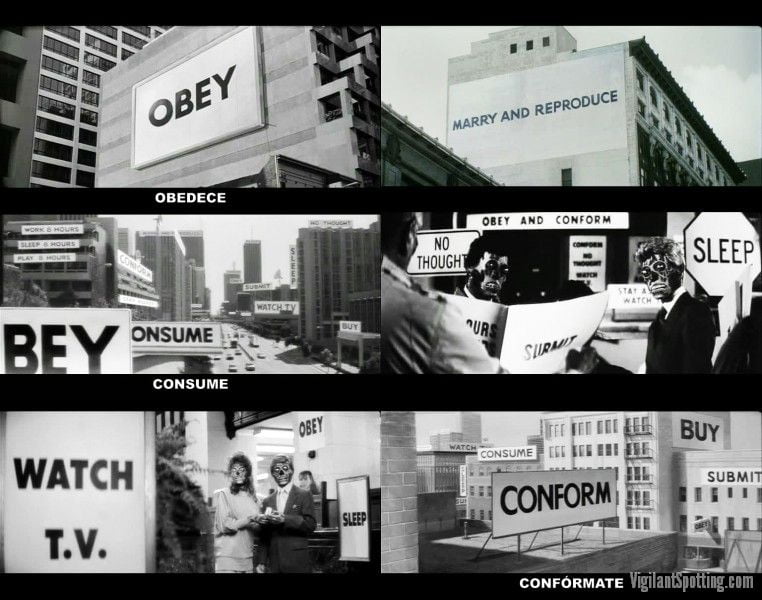
By Gregory Hood,
China is notorious for a “Social Credit System” that controls the lives of citizens, rewarding what the authorities want and punishing what they don’t. The United States has a social credit system, too, even if we don’t call it that. And ours is worse.
The Chinese system tries to build social trust. Ours destroys trust. The Chinese system defends the interests of the Han, the ethnic group that built and sustains Chinese civilization. Our system hurts whites. The Chinese system encourages charity, good citizenship, and patriotism. Ours incites hatred and spreads bitterness and division.
The Chinese government’s goals are clear: According to a 2014 planning document, the state wants to build a “social credit environment of honesty, self-discipline, trustworthiness, and mutual trust.” Despite the reputation of the Chinese Communist Party, there is no central system of control, but that is only because the government lacks the capacity. According to the 2014 plan, by this year, China should have “basically” completed “a credit investigation system covering the entire society with credit information and resource sharing.”
Vox reports China has a grading system for people from A to D. Ds are “untrustworthy.” “Citizens can earn points for good deeds like volunteering, donating blood, or attracting investments to the city,” said the MIT Technology Review in 2019. “They can lose them for offenses like breaking traffic rules, evading taxes, or neglecting to care for their elderly parents.” Taking seats on public transportation reserved for old people or doing anything the South China Morning Post called “uncivilized behavior” can also cost points.
You can lose points for playing video games too often, buying too much alcohol, arguing at check-in counters, boarding a train without a ticket, getting into a fight, posting stickers hostile to the government, or letting chickens out of their coop. You can lose your dog if you walk it too often without a leash or if it bothers people. NPR reports that “if you spread rumors online” you could lose points, and even “spending frivolously” can cost points. The system punishes some things just as we do in the United States. If you drive drunk in China, you lose points. If you drive drunk in America, you can lose your license.
How does the system find out all this about you? The Chinese track people through a combination of cameras, facial recognition software, spies, and data from tech and social media companies. There are an estimated 626 million security cameras in China, capturing all sorts of behavior. The Straits Times reported that cameras caught a citizen jaywalking, recognized her face, and immediately put her photo up on a video screen above the street, along with her name and past infractions. The Chinese use drones disguised as birds.
There are groups of paid government informers. In one case, a group of senior citizens called the Chaoyang Masses supposedly tracked behavior, though some people thought the group was questionable. This could be a feature of the system; you don’t know who is watching. The New York Times reported in 2019 that the government uses students to track professors.
Companies such as Alibaba and Tencent track your online activity, and you can lose points if you publish political opinions without permission or talk about certain issues such as Tiananmen Square. You also lose points if your friends commit infractions; collective punishment helps isolate dissidents and discourage others. However, you can gain points if you parrot the government line. Some of this is self-reported and checked against data held by the government, tech companies, and surveillance records. There is an app called Sesame Credit that lets you track people’s scores. It is voluntary for now but will eventually be mandatory.
“Trust-breakers” go on an online “blacklist” that anyone can search. “Trust-keepers” go on an equivalent “redlist.” Everyone’s behavior is public, and the authorities encourage citizens to compete with each other to get good scores.
Good citizens can get discounts on energy bills, better returns on bank deposits, and can rent bikes or hotel rooms without paying deposits. Local officials praise them publicly. In Suzhou, “trust-keepers” get cut-rate public transportation.
Depending on the locale, if your credit score reaches 600, you can take out an instant loan of about $800 without collateral when shopping online. At a score of 650, you can rent a car without a deposit. At 700, you get priority for a Singapore travel permit, and at 750, you are on the fast track for a coveted Schengen visa for 28 European countries.
Punishments include banning you or your children from top schools, barring you from top jobs and the best hotels, and preventing you from buying high-speed train or air tickets.
Businesses also get grades on, for example, whether their advertising is deceptive. If their grades are too low, they can’t issue bonds or bid in land auctions.
There’s a financial aspect to the system. It costs points if a person or business fails to repay a loan. We have credit scores, too. The difference is that the Chinese government can — and does — deduct points for political reasons. It could cut a business or family out of normal activity for saying the wrong things. Your social credit “grade” could wreck your life.
If the system is fully imposed, it would be terrifying to be a D. China does not yet have a centralized, all-encompassing system. Different government agencies, localities, regions, and private companies share information and have different programs, rewards, and penalties. Two years ago, Foreign Policy explained that “unless people are sole proprietors or company representatives, have taken a loan or credit card, violated the law, or defaulted on a court judgment, they’re unlikely to be in the social credit database.”
China wants to get all 1.4 billion people into the system. Since China routed the Hong Kong autonomy movement, the system will surely spread there too. “All regions and departments should have ideological unity,” says the plan.
China is working hard in two areas that will help it control its people. The first is artificial intelligence to manage vast amounts of data. The United States and China are competing in AI systems, and that battle could help determine who rules this century. Collecting enormous amounts of data on citizens will mean finely detailed control.
The second area is digital currency. China is already experimenting with a digital yuan. Most people in China already use mobile apps for transactions, not cash. A full record of transactions, combined with AI, means tremendous government power to track individual behavior and modify social credit scores.
A “cashless,” total-social-credit China could be a prison. It would mean no unauthorized buying or selling, no political opposition (“ideological unity”), and little privacy. However, citizens would be forced to fulfill basic duties such as taking care of families and paying bills. They would be rewarded for helping their communities. The Chinese Communist Party would succeed in turning the people it rules into typical petit bourgeois with conservative norms.
The Chinese government wants to “broadly shape a strong atmosphere in the entire society that keeping trust is glorious and breaking trust is disgraceful . . . .” In other words, China wants a high-trust society.
Diversity destroys trust, as white advocates often point out. China is working to overcome this problem by replacing Tibetans and Uighurs with Han Chinese. The government is also Sinicizing these areas, especially by suppressing Islam. A faithful Muslim should rebel against these policies, but a Han Chinese sees this as protecting national interests.
We have the equivalent of a social credit system in the United States. It just has different incentives. You can lose your job for a politically incorrect remark caught on camera. Political dissidents find they can no longer use PayPal or even banks. Twitter bans people with whom it disagrees, while users with verified accounts can make threatening or violent statements.
“Spreading rumors” or “conspiracy theories” is cause for social media to boot you. Some journalists spend time hunting down people who spread “conspiracy theories.” If journalists or trolls decide that your small business or video channel needs to be deplatformed, they can complain to tech companies, and once you are off, there is no appeal. For many people, that means loss of livelihood.
Power-hungry people invent new forms of social credit all the time. Democrats have started a Trump Accountability Project so that Trump supporters can “never serve in office, join a corporate board, find a faculty position or be accepted into ‘polite’ society.” With a remarkable new website called Donor.Watch, you can find out exactly how much your neighbors (or anyone in the country) gave to any of the 2020 candidates. The tools are there for Democrats to set up shaming mobs to harass or intimidate Trump supporters.
Social media, which let ordinary people express themselves and were originally to be bastions of free speech, have taken it upon themselves to determine what is official information. Even now, Twitter is censoring President Trump, and Facebook is removing Trump supporters and their groups.
You can’t cast an informed vote or express yourself if you can’t learn or speak the truth. In his book Deleted, Allum Bokhari showed Google’s power to direct information, sway votes, and bury stories it doesn’t want covered. While the Democrats often say tech companies don’t censor enough, they at least recognize their power. A House Judiciary Committee report recently found that Amazon, Alphabet (Google/YouTube), Apple, and Facebook use monopoly power to suppress competition. President Trump’s Department of Justice recently sued Google, calling it the “gatekeeper of the Internet.”
Conservatives banned from the big platforms can go elsewhere, but what happens when Parler and Gab lose their payment processors or servers or even their bank accounts? Will we have to build our own banks and internet?
Our system is not exclusively punitive. The American system encourages banks to lend to non-whites with doubtful credit. There is a broad set of incentives to promote minority — especially black — bank ownership, even as black banks keep going under because they keep lending money to dubious black borrowers.
Social media openly promote Black Lives Matter, and every minority cause, holiday, and celebration. Book sellers direct you to endless titles on anti-racism and white privilege.
Unlike the Chinese version, American social credit is not state run and is even less centralized than China’s. However, it’s not true that the state has no involvement. Acting secretary of the Department of Homeland Security Kevin McAleenan admitted in 2019 that although the government cannot act as a censor, it expects to work with tech companies and “watchdog groups” to force ideas it doesn’t like off the internet.
The Republicans have done hardly anything about this. An American president is relatively weak, and unlike Xi Jinping, can’t issue orders through the bureaucracy and expect obedience. Perhaps President Trump lacks the will. Kamala Harris, probably the next vice president, appears to have plenty of it. She wants to give the FBI millions of dollars to “more vigilantly monitor white nationalist websites” and “put pressure on online platforms to take down content that violates their terms and conditions.”
Under a Biden/Harris White House, the partnership between state and media would therefore grow stronger. Like Chinese officials, many Democrats and journalists take it for granted that not only traditional media should promote certain stories and suppress others, but “open” social media should do the same. The American system increasingly resembles the Chinese, with ideology imposed from the top.
We do not have single-party rule in the United States, but we do when it comes to white interests. Republicans and Democrats unanimously blamed “White nationalists, white supremacists, the Ku Klux Klan, neo-Nazis and other hate groups” for violence at the Unite the Right rally in 2017 — as if antifa were not even there — even though local officials deliberately forced demonstrators and antifa together so that violence would be an excuse to shut down a legal rally. There may be two parties, but both agree that whites must not promote their collective interests in the streets or online.
Just as the Chinese system punishes people for associating with low-scoring trust-breakers, the media and “watchdog” groups love to publicize “links.” The Washington Post recently revealed in an indignant article that a Trump Interior Department official had linked to an article at AmRen.com. American dissidents routinely use pen names, and “respectable” people keep their relations with them secret.
In some respects, an openly authoritarian government is better than our system. It’s clear who is in charge. Citizens know who rules them. It’s easier to remove a tyrant because you can always march on the palace or the party HQ. If you are ruled by a dictator, king, or party, you also know what the rules are; if you follow them, you can avoid trouble.
Our system is much more diffuse and therefore much harder to fight or even understand. Private companies, on a whim, can shut down your social media account, refuse to sell your books, make it impossible for your business to take credit cards, and close your bank account. You have no recourse, not even to the courts. Each company has its own inconsistent, arbitrary, ever-changing rules. Now, they all say, in effect, “We’ll kick you out if we don’t like you.” And that’s what they do.
If there were legal censorship, there would be laws that limited free speech. They might be vague and inconsistently enforced, but there would be rules. If the court system had any integrity, there could be litigation and legal appeals. In our system, every person you know is a potential commissar. If you become the subject of a “viral” story, literally millions of people can turn against you. This is “public shaming” worse than anything the Chinese face.
Their system is authoritarian, but it has this crucial difference from ours: It pushes people to behave correctly. In our Anglo-American tradition, personal virtue is the guarantor of our liberties, so we don’t need overarching government. However, we are no longer virtuous, at least not in the way the Founders understood virtue. Instead, anti-racism has become America’s moral code, and blacks are semi-sacred. Any social interaction with a non-white can be a life-changing disaster if it is caught on camera. The rules for what is politically correct change so quickly no one can be sure what to say to avoid trouble. We’re in an absurd system in which groups that enjoy government mandated “affirmative action” lecture us about our privilege. Although “racism” is the main sin our social credit system punishes there are others: “homophobia,” “Islamophobia,” “misogyny,” “xenophobia,” with more new ones invented all the time.
While the Chinese social credit system builds a better — if regimented — society, ours makes it worse. The media feed non-whites moral arguments to use against whites, whether they are about “racist” police, “systemic racism,” or “far-right extremists.” Anyone non-white, from educated elites to illiterate thugs, can feel justified in attacking middle-class whites because the only explanation for inequality is white racism.
Thus, our system doesn’t build “mutual trust” but suspicion and even hatred. Instead of building national unity, the American system undermines the foundation of patriotism by telling us our history and heroes were racist and evil. The Chinese system punishes destructive behavior and rewards charity. The American system winks at destructive behavior such as BLM rioting, and rewards “virtue signaling,” not real virtue.
White-owned business can be deplatfromed online and some can be ransacked by radicals, with no interference from the police. The right even to self-defense is under attack (ask Kyle Rittenhouse or Mark and Patricia McCloskey). In some areas, people cannot gather to demonstrate or even to worship, while antifa and BLM protesters can do almost anything with impunity.
Can we honestly say we have more freedom than the Chinese? Can we say that our government pursues our interests or protects our rights? Can we trust technology companies and major media? Are our elites pushing us towards greatness or towards dispossession and pariah status?
Still, we do have advantages. The great strength of the American Social Credit System is that it is ad hoc and unofficial. It’s hard to know exactly what or whom to attack but that’s also its weakness. There are “gaps” in the system we can exploit. At the same time, our rulers’ lust for power is clearer than ever. Donald Trump, however half-hearted and bumbling, forced our opponents to reveal their snarling hatreds and their breathtaking arrogance in believing they have the right to control what we read, hear, watch, and think.
We still have rights. American Renaissance sued the state of Tennessee, and won the right to use public facilities without paying for security. Others are suing tech companies. We are creating new ways of donating and accepting money, spreading our message, and building new platforms. These aren’t temporary workarounds, but steps towards community- and even nation-building. They are forcing us to do the things we should have been doing anyway.
What should a healthy society want? Perhaps every advanced society will have a formal or informal Social Credit System. Elites always try to control information, capital, and behavior. When we take control of our own destiny, we will promote strength, beauty, and virtue. We are a freedom-loving people, so I believe that if we slough off this current system, we can achieve these goals without repression.
Who rules the United States? I’d argue it’s media and Big Tech. They decide who can speak in the public square, raise money, do business online, or enjoy the full protection of law. They encourage victimhood instead of heroism, and distrust instead of unity. China’s system promotes positive values, exalts its people, and directs them towards positive ends.
It’s hard not to feel envious. The greatest threat to white Americans certainly isn’t Beijing. It’s those who presume to rule us, holding us captive, trapping us behind a blue screen.
Source: https://www.unz.com
Disclaimer: We at Prepare for Change (PFC) bring you information that is not offered by the mainstream news, and therefore may seem controversial. The opinions, views, statements, and/or information we present are not necessarily promoted, endorsed, espoused, or agreed to by Prepare for Change, its leadership Council, members, those who work with PFC, or those who read its content. However, they are hopefully provocative. Please use discernment! Use logical thinking, your own intuition and your own connection with Source, Spirit and Natural Laws to help you determine what is true and what is not. By sharing information and seeding dialogue, it is our goal to raise consciousness and awareness of higher truths to free us from enslavement of the matrix in this material realm.
 EN
EN FR
FR

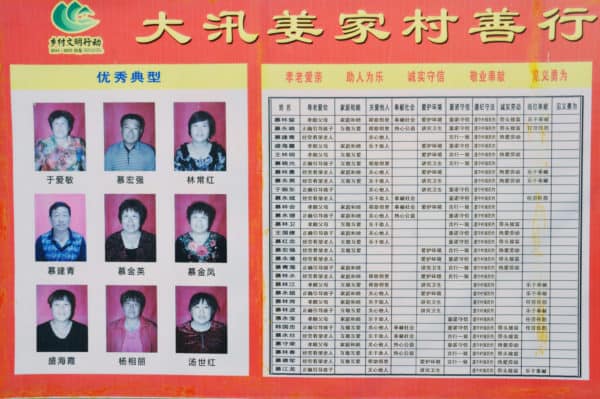
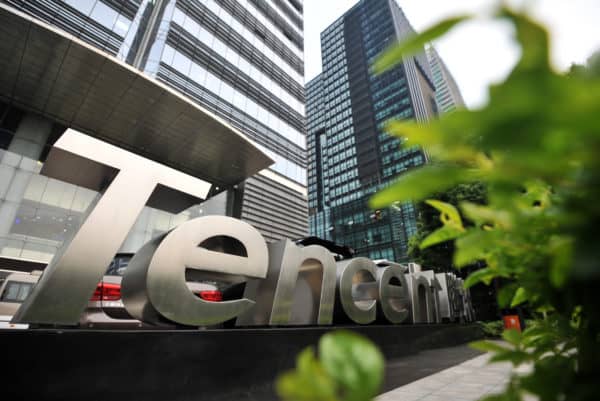
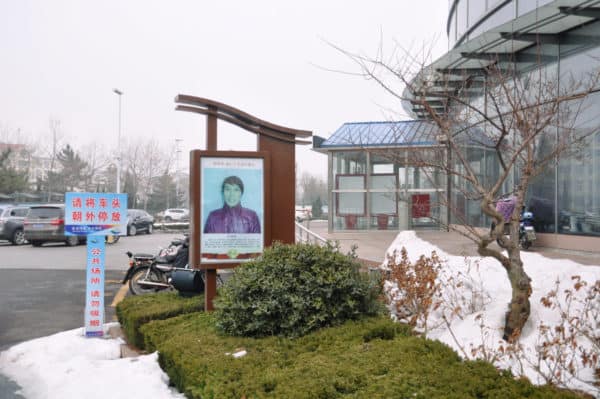
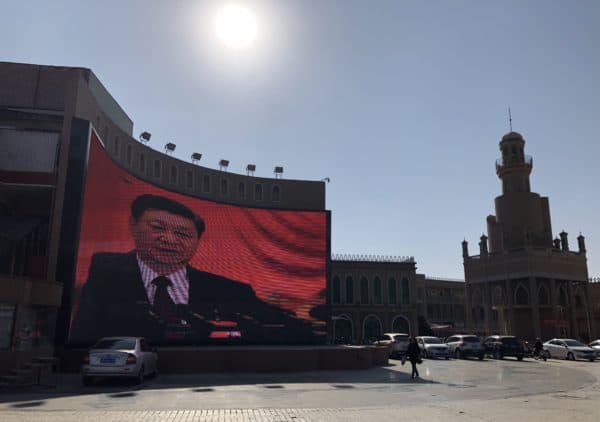
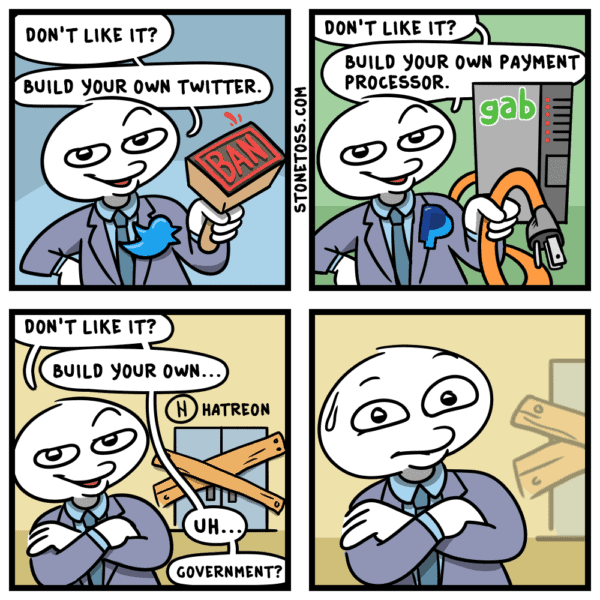

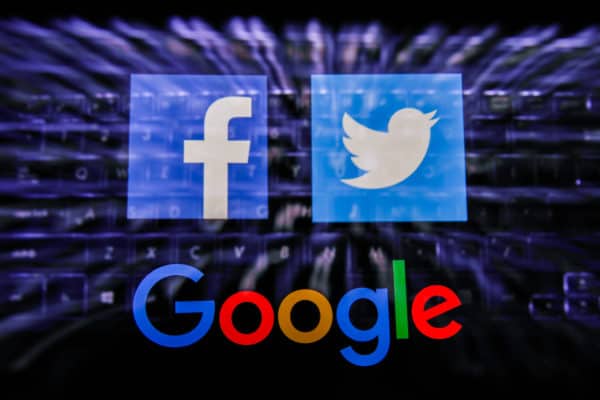

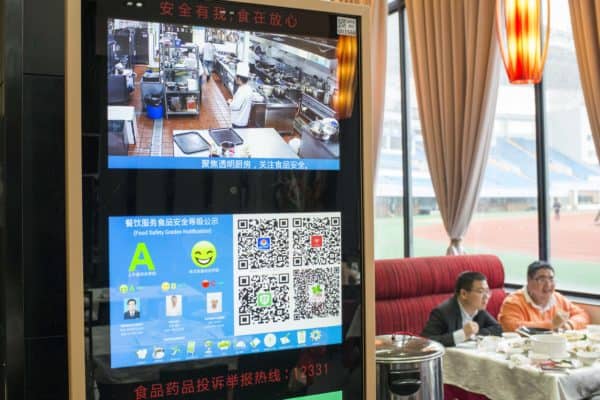

























I disagree with the Chinese Communist Party’s ethnopolitical persecution of Tibetans and Uyghurs, as well as their social credit system. But I don’t like the decentralized social credit system either, given its potential to censor my dream communal media project. Besides, a Falun Dafa adherent called the social credit system “a persecution of all people” at Minghui.
https://www.deviantart.com/wildhunterworld
https://en.minghui.org/html/articles/2019/1/28/174796.html
https://www.deviantart.com/puretassel/art/Editions-on-the-Specter-of-Communism-775283307
https://national-justice.com/current-events/american-journalist-robert-rundo-releases-new-segment-greek-nationalist-movement
NO!